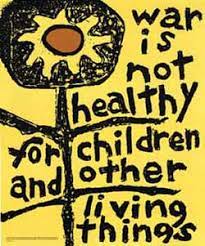MONDAY, JANUARY 31, 2022 TET OFFENSIVE
War is an interesting proposition. Why we go to war is a tough call. Because of injustices? Because of hatred? Because of unjust rulers?
VIETNAM:
History of Indochina. The various nations in the 19th century wanted to spread their “ownership” over a lot of areas. The slogan “The sun never sets on the British Empire was true, with columns in Asia, Australia, New Zealand, Africa, Canada, and Caribbean islands. Spain had colonies in South and Central America. Portugal had Brazil and Angola (and others). Germany came late to the colony area (largely because of its lack of unity. France claimed Indochina - or Laos, Cambodia, and Vietnam.
The French were fighting in Vietnam to maintain their colonial power and to regain their national pride after the humiliation of World War II. The U.S. government had an interest in the conflict in Indochina from the end of World War II until the mid-1950s when France found itself fighting against a communist insurgency led by Ho Chi Minh.
Throughout the early 1950s, the Viet Minh forces made significant gains. In May 1954, the French suffered a military defeat at Dien Bien Phu and negotiations began to end the conflict.
Following the French withdrawal from Indochina, the solution put in place established a communist government in North Vietnam and a democratic government in South Vietnam. The Americans began supporting the South Vietnamese with political and military advisers in the late 1950s.
*****
American Involvement:
“The U.S. entered the Vietnam War in an attempt to prevent the spread of communism, but foreign policy, economic interests, national fears, and geopolitical strategies also played major roles.”
The American foreign policy of the 1950s/1960s followed the division of the Cold War - US versus Russia / Capitalism (and free enterprise) against (Godless) Communism. When North Vietnam as a Communist country wanted to unite Vietnam (into one Communist country), the United States balked. Similar to when North Korea invaded South Korea, the United States (and others) fought the Korean War (which in some respects continued yet today).
The Domino Theory held that communism would spread if Vietnam became communist.
Some other factors:
The anti-communist sentiment at home influenced foreign policy views.The Gulf of Tonkin incident appeared to be a provocation for war.
As the war continued, the desire to find an "honorable peace" was motivation to keep troops in Vietnam.
But things changed with an incident in the summer of 1964.
American naval forces in the Gulf of Tonkin, on the coast of Vietnam, reported being fired upon by North Vietnamese gunboats. There was an exchange of gunfire, though disputes about what exactly happened and what was reported to the public have persisted for decades.
*****
In March 1965, President Johnson ordered U.S. Marine battalions to defend the American airbase at Da Nang, Vietnam. It marked the first time combat troops were inserted into the war. The escalation continued throughout 1965, and by the end of that year, 184,000 American troops were in Vietnam. In 1966, the troop totals rose again to 385,000. By the end of 1967, American troop totals peaked in Vietnam at 490,000.
The Johnson administration began a series of airstrikes against targets in North Vietnam. It was assumed by Johnson’s advisers that air attacks alone would cause the North Vietnamese to negotiate an end to armed conflict. That did not happen.
So, despite protests that said “Why are we sending out American “boys” to fight in the jungles of Vietnam?”, policy leaders decided that we (the United States) needed to stop the spread of the Communist philosophy.
It was a line in the sand - don’t spread communism - or we (the United States and our Allies) will come after you!!!
*****
On this date in 1968, the Tet Offensive began.
The Tet holiday is the Vietnamese Lunar New Year. The Tet festival often occurs at the end of January or the beginning of February. It is the longest holiday in Vietnam.
In 1967, the North Vietnamese leadership vigorously debated how to move forward with the war. While some in the government advocated taking a defensive approach and opening negotiations, others called for pursuing a conventional military path to reunify the country. Having sustained heavy losses and with their economy suffering under the American bombing campaign, the decision was made to launch a large-scale offensive against US and South Vietnamese forces. This approach was justified by the belief that South Vietnamese troops were no longer combat effective and that the American presence in the country was highly unpopular. The leadership believed that the latter issue would incite a mass uprising across South Vietnam once the offensive began. Dubbed the General Offensive, General Uprising, the operation was scheduled for the Tet (Lunar New Year) holiday in January 1968.
The Tet Offense was a success, The war had become controversial back in the United States. And, eventually, lead to the downfall of the South Vietnam government and the reunification of Vietnam.
So, fifty-some years later what do we think?
Should there be a worldwide police force - taking care of bullies, and corrupt governments? Should it be us?
There are a lot of bullies in the world, there are a lot of corrupt governments. Which ones are worth our involvement?
As the world watches the Russia/Ukraine situation, and as America discusses what we could or should do there. After attempting to get rid of the bullies in Afghanistan (and pulling out with a bloody nose), what is our (United States) role?
Tough questions
LOVE WINS!!!
Karen
January 31, 2022

No comments:
Post a Comment
Thank you for visiting Karens2019.blogspot.com. I will review your message!!!